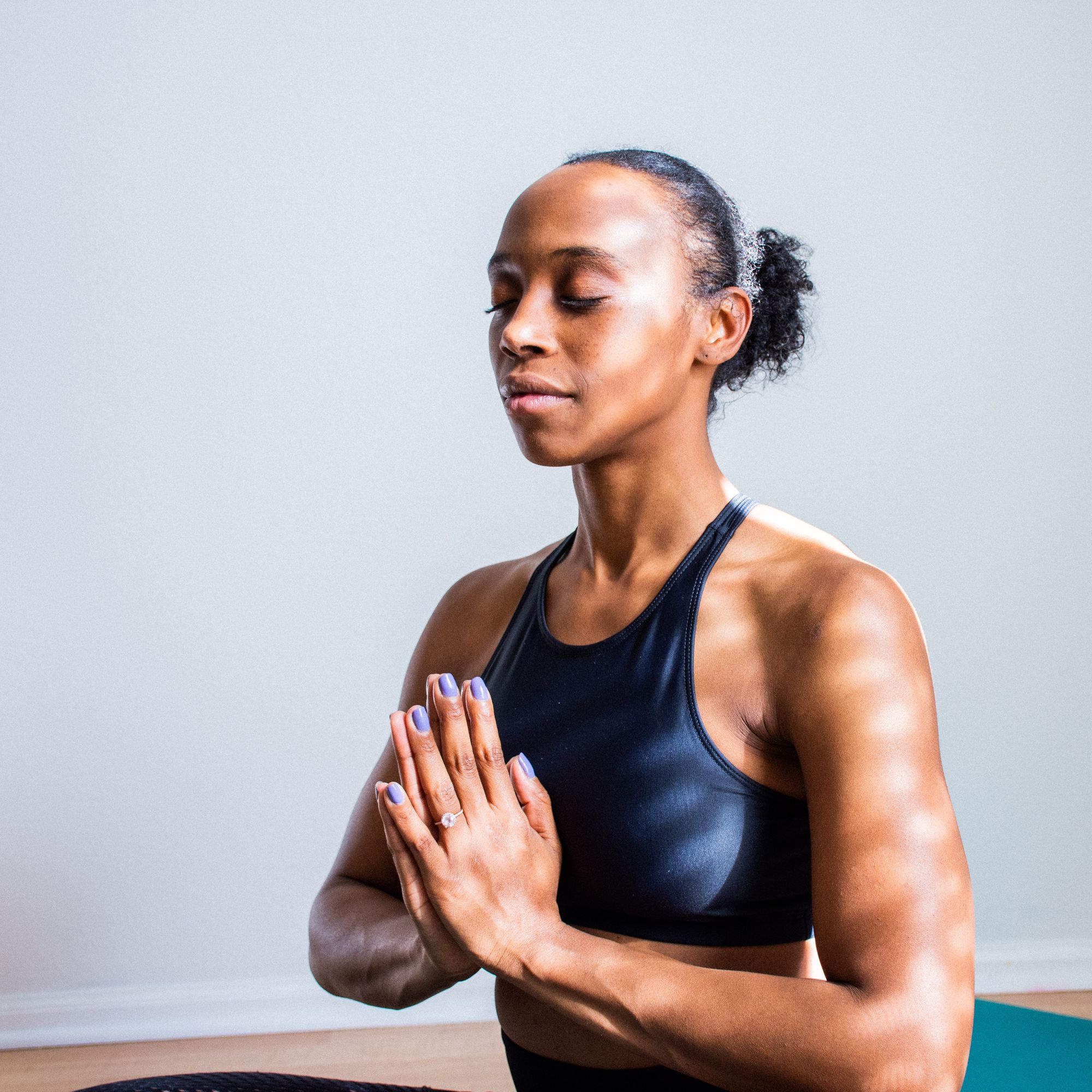We share 10 meaningful ways you can make positive, sustainable, and actionable changes in your life to find joy in unexpected places
Are you happy? It's a goal many of us aim for, but how do we know?Shouldn’t it be simple – you either are, or you aren’t? Is it something we should even be working towards, or should we be waiting for it to happen naturally?
Happiness is an emotional state where we feel a myriad of different things including joy, satisfaction, wellness, contentment, and fulfilment. But feelings of happiness can be fleeting, like momentary bright sparks in an otherwise stressful, busy, and overwhelming landscape.
Happiness doesn’t just mean an absence of stress, worry, and anxiety. You can still be happy while experiencing other, less enjoyable but completely natural emotions. In fact, when we are experiencing happiness at our core, we may feel more able to face big life events, changes, or periods of high stress without becoming as overwhelmed.
So, how can we stop wishing for happiness, and start making the pursuit of happiness part of our day-to-day lives?
10 ways to make happiness your priority
1. Define what happiness looks like for you
There is no one single definition of happiness, as every description varies a little from the next.
There are even different types of happiness that people seek. Some may focus on more hedonic happiness (experiencing more pleasure and less pain), while others may look for eudaimonic happiness (the result of seeking and fulfilling their life purpose, a challenge, or personal growth).
Consider what you value most. What gives you a sense of satisfaction, fulfilment, or contentment? Is it spending time with friends and family, moving up the career ladder, or helping others achieve their goals? Is it feeling more financial secure, focusing on your passions, or reaching a state of complete self-reliance?
Our core values are highly personal, and shape the way we live. Spending time defining what those are can help us to get a better idea of which areas in life we wish to focus on, and what, ultimately, can become the foundations of how we spend our lives.
2. Get in the right mindset
Some people try to simplify happiness by saying it’s all about waking up and 'deciding' you want to be happy. If that were the case, wouldn’t we all be happy? What people actually mean by this, is that you need to open yourself up to the right mindset.
When we are used to bad things happening, it can become a defence mechanism to think that, of course, more bad things will happen. But automatically assuming the worst can unwittingly close ourselves off to fostering a more positive mindset, and result in seeing the worst in both things and people around us. Instead, be ready to challenge negative thoughts and attitudes, rather than simply accepting them at face value.
3. Put wellbeing and self-care first
Self-care isn’t just about the fun bits like candlelit baths, aromatherapy oils, and forest bathing with loves ones. It’s about taking care of yourself in mind and body. That means finding ways to make exercise part of your routine by doing something you enjoy, rather than feeling reluctant to drag yourself to the gym once or twice a week. It means identifying and addressing unhelpful coping mechanisms, like ignoring stressful situations until we feel at breaking point. It can mean challenging yourself to learn new things, stimulating yourself intellectually, and being open to new ideas.

4. Have the money conversation with yourself
'Money doesn’t buy happiness' – it’s a nice thought, but this isn’t necessarily the case. While money isn’t a magic solution, it can create a sense of security, allowing us to fulfil our basic needs for food, shelter, and warmth. It enables us to focus on other areas beyond basic survival.
In 2010, a study in Psychological and Cognitive Sciences famously shared that “high income buys life satisfaction but not happiness”, finding that emotional wellbeing rose in line with salaries up to $75,000, but made no difference beyond that point. However, new research from 2021, published in Proceedings of the National Academy of Sciences, suggests things have changed, as the rise in emotional wellbeing in line with income seemed not to be capped by a certain figure.
The thing is, money isn’t a bad thing. And talking about our finances shouldn’t be something we feel embarrassed about – but money trauma is real, and has long-term effects. However, if we fail to examine our financial wellbeing, we risk spiralling into debt, feeling pressured to live above our means, or generally overwhelmed. So facing that fear and acknowledging our finances can be a much healthier, and happier, choice.
5. Make meaningful connections
How we connect to others has a huge impact on our overall happiness. The more we feel able to trust and rely on others, the closer we can feel to them. And our connections can create a sense of encouragement, being valued, appreciated, and loved – all of which boost our overall sense of wellbeing, resilience, and happiness. Meaningful, satisfying relationships don’t just make us happier, they can also improve our health, and even help us to live longer.
6. Give back
Giving should be an important part of our lives, as it helps us to feel good, strengthens our personal values, helps make a real impact, and encourages others to do the same. Whether that’s supporting your local community, or national or international causes, giving doesn’t have to mean donating money. Your time, voice, even sharing things online, can all have a positive impact.
7. Identify your dreams (and make them happen)
We’ve all had a dream. Big or small, silly or serious. But how many of us have given up on them before we've even begun? Real life gets in the way, other priorities take hold. Our chances of achieving our dreams seem to small – why even bother?
Having a big life goal can give us a sense of purpose. Dreams can inspire us, push us to keep going when times are tough, and make dreary jobs feel worthwhile as we have something more to work towards.
No one else is going to follow your dreams for you. Pursuing them can create a sense of momentum, confidence, pride and personal growth, and ultimately, creates a sense of hope.
8. Declutter your life (physically and mentally)
Over time, we collect so much stuff, we can begin to feel weighed down –Physically, mentally, and emotionally. Things we feel obligated to keep, things we don’t know what to do with, sentimental bits and pieces we feel guilty for considering getting rid of.
Resetting our environment can help us to let go of some of the things that are holding us back. Decluttering can benefit both mind and mood, creating a corner of calm when we may be feeling overwhelmed, or exhausted.

9. Make time for reflection, re-evaluation, and redefinition
Throughout life, we change – and so do our wants, needs, and goals. So why wouldn’t our definition of happiness and what is right for us change over time, too?
Reflect on the past year. What could have gone better? What made you happy? Did anything unexpected happen, and how did it make you feel? What were your goals? Did fulfilling them feel the way you expected?
By taking time to reflect, you can re-evaluate your goals, ensure they still align with your values, and keep moving forwards. Making intentional changes and plans can help create a sense of control and purpose, putting you back in the driver’s seat of your life.
10. Consider working with a happiness coach
A coach can help you to identify your purpose, whilst acting as a guide and a source of accountability. Having an outside perspective as a sounding board can allow you to feel more comfortable opening up about what you really want, while providing a place to explore how you could achieve that. They can also help you to recognise areas which you cannot change, steer you towards areas you can control, and help you to understand how happiness is ultimately a journey, not a final destination.


Comments